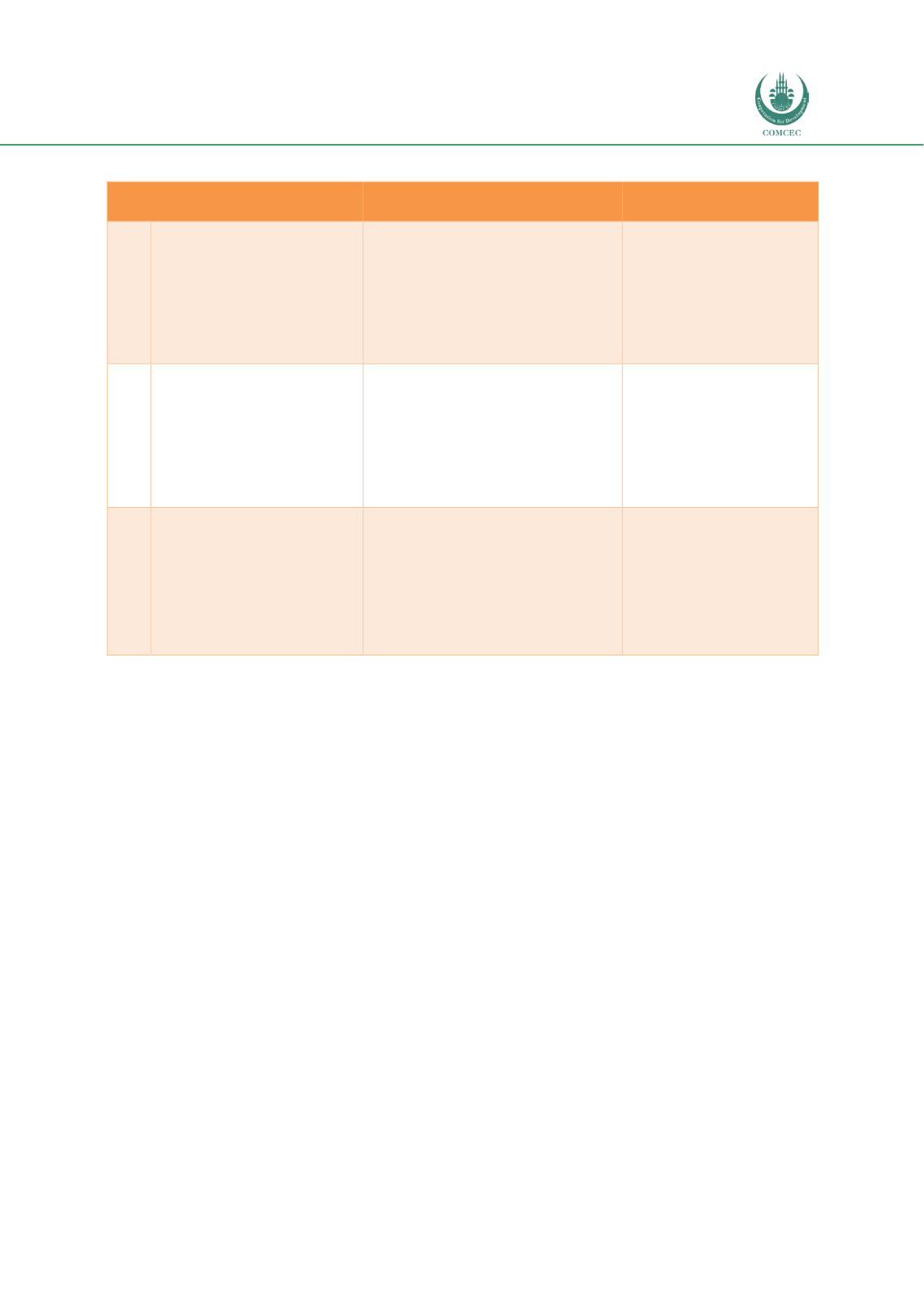

Infrastructure Financing through Islamic
Finance in the Islamic Countries
183
Table 5. 10: Policy Recommendations for Reducing Knowledge Gap
No. Recommendations
Specific Steps
Implemented by
9.1 Fill the knowledge gap
Increase awareness among
stakeholders to increase the
use of Islamic finance for
infrastructure projects
Develop an Islamic
infrastructure finance
Database
Relevant
government
ministries
Multilateral
development bank
(IDB) or proposed
IIIB
9.2 Develop Standardized
Shariah-Compliant
Products for
Infrastructure Financing
Develop
templates for
Shariah structures for PPP
and financing infrastructure
projects
National Shariah
board
Multilateral
development bank
(IDB) or proposed
IIIB
AAOIFI
9.3
Build capacity and
human capital for
implementing Islamic
project financing
Develop executive training
programs for Islamic PPP
and infrastructure financing
Technical assistance from
multilateral development
organizations
Multilateral
development bank
(IDB) or proposed
IIIB
COMCEC
A related issue to developing the knowledge base is to build capacity to implement Islamic
financing for infrastructure projects. This will be relevant in countries where Islamic finance is
relatively new and underdeveloped such as Nigeria. To implement the capacity building would
require identifying professionals with knowledge and skills related to infrastructure financing
and then using them to provide specialized training to the executives of Islamic financial
institutions in different countries/regions. The capacity building can be done by developing
executive training programs and using technical assistance from multilateral development
banks (MDBs) or the proposed International Islamic Infrastructure Bank.
5.10.
Sectoral Significances in Islamic Infrastructure Finance
While the recommendations on the increase of the contributions of individual sectors have
been outlined, in this section the role of the overall Islamic financial industry is examined. The
case studies show that the contribution of Islamic finance in infrastructure development will
depend on the characteristics and size of the sectors. For example, the smaller size of the
Islamic banks and financial institutions impose limits on investments in large infrastructure
projects. In countries where the Islamic banking sector is still small, using Islamic capital
markets to raise funds for infrastructure appears to be a better option. The case studies show
that in countries such as Indonesia, Nigeria and the UK where the Islamic banking sector is still
a small component of the overall banking sector, the governments have been able to issue
sukuk that were oversubscribed.
















